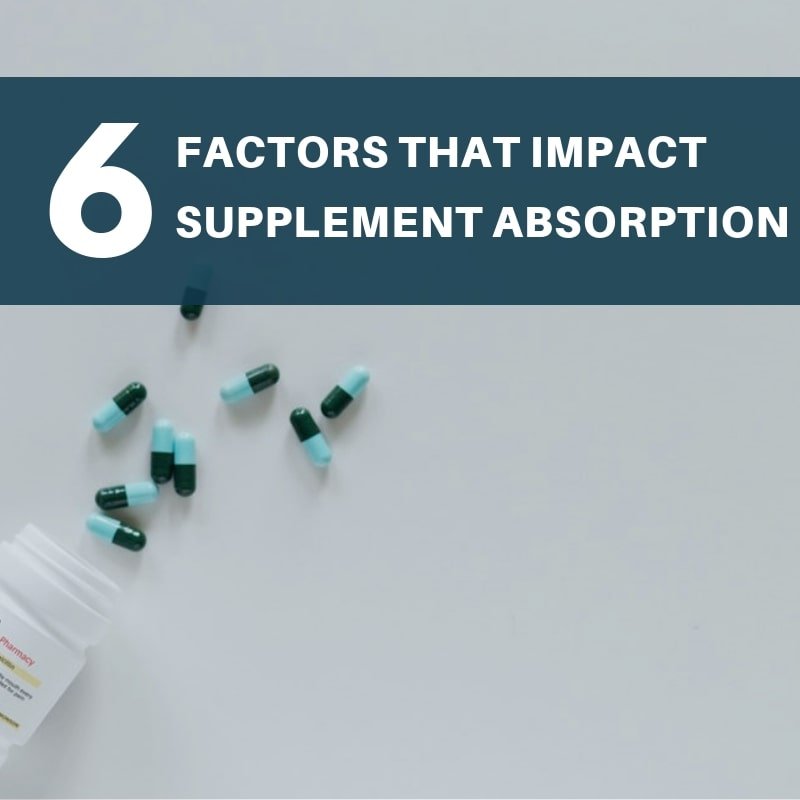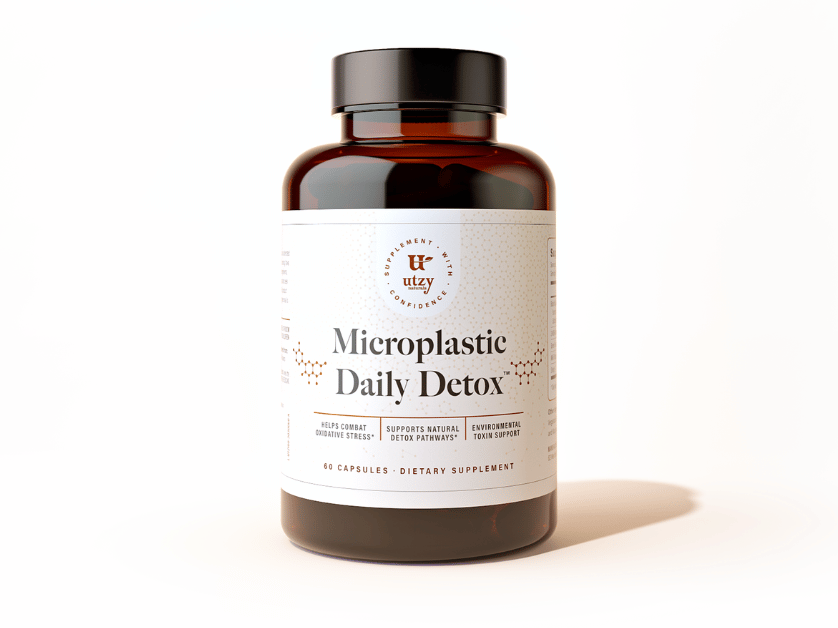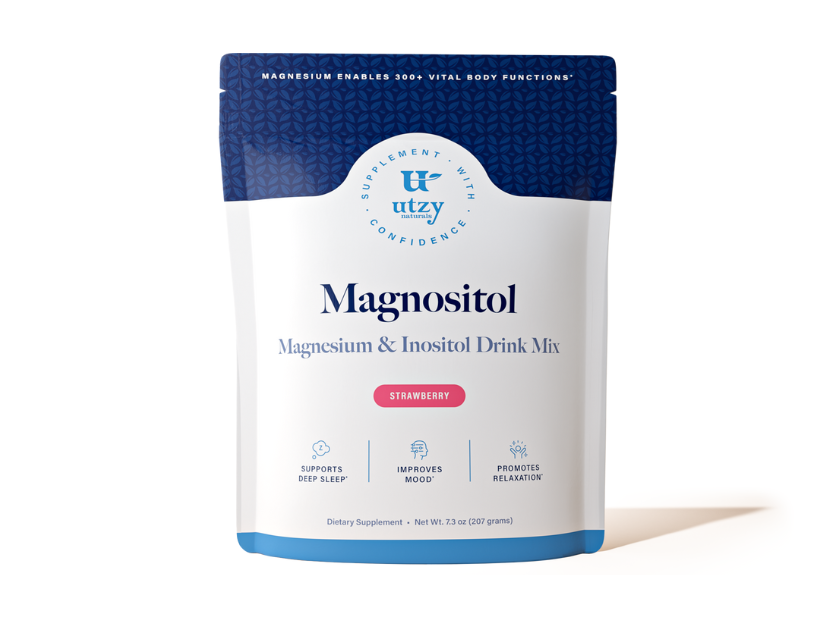shop
learn

How Long Does It Take A Supplement To Start Working?
September 05, 2018 6 min read
Many people find themselves asking the question, “how long does it take for supplements to work?”.
Though this question seems simple, it can actually be quite complex. The answer depends on the individual person and the supplements that you take.
Thankfully, we can dig into scientific research and get a better idea of how long it takes for specific vitamins and minerals to kick in.
How Long Does It Take For Supplements to Work?
One of the first things we have to do is to define what it means for a supplement to “work”. By “work”, we mean that a supplement has been readily digested and utilized by your body.
Your body has stores of nutrients that it maintains for different bodily processes. Think of these as your “nutrient pools”.
If your nutrient pools are empty, your body doesn’t have enough raw materials that it needs for different functions and processes. When this happens you have what is called a “nutrient deficiency”.
For instance, if you have low amounts of Magnesium in your body (which can lead to muscle cramping and negative mood), if you start taking Magnesium and see those issues go away, then that would mean that the product is “working” for you.
The amount of time it takes for a supplement to start working depends on a few different factors. This includes supplement dosage, how extensive your nutrient deficiency is, how quickly your body is able to digest the supplement, and a few other factors (we'll go over them below).

The 6 Crucial Factors That Impact Supplement Absorption
Below are a number of different factors that play a role in how long it takes for a supplement to work. As was stated above, much of it comes down to the person, the product taken, and the health complaint.
1. What Caused Your Deficiency?
The first question to ask is "what’s causing your nutrient deficiency?". Why are your nutrition pools empty in the first place? Is it genetic? Is it a side effect from something else? Is it the result of a poor diet?
If you don’t find out what’s draining your nutrient stores in the first place, you may never be able to fully re-fill them (let alone maintain healthy levels going forward).
2. How Severe Is Your Nutrient Deficiency?
This is one of the main factors in how long it takes to absorb a supplement. If you have a big deficiency in a particular nutrient, you’ll need a major surplus of that nutrient over a long time period to get back to normal levels.
A greater deficiency means that it will take a longer time to get back to ideal nutrient levels.
3. The Dosage Of The Supplement
If you have a big deficiency, you’ll need a large dosage to fill up your pools. A supplement with a larger dosage will speed up the process.
If you take a micro-dose of a vitamin and you have a major deficiency, it will take a LONG time for you to even out your levels. So, if you have a major deficiency, make sure that you have an appropriately dosed supplement.
An example of this is with vitamin D. Many people are deficient in this crucial vitamin. Taking a supplement with 500 IU's or even 1,000 IU's is not enough to give you the surplus that you need. These dosages will cover your needed daily requirements, but won't allow for a surplus.
That's when you need a product like our Natural D3 5,000. This larger dose is ideal for helping normalize your body's vitamin D levels.
4. The Quality Of The Supplement
The quality of the product you buy is very important. If you buy a cheap supplement in a cheap form, you’ll end up being disappointed.
High quality supplement brands will formulate their products with easily-absorbed ingredients. At Utzy we source our ingredients from the finest natural suppliers in the US and Europe, we do this so that you can have confidence that our supplements will work.
Additionally, it’s very important that you purchase a product that has full testing, cheaply made products will skimp on testing. Without full testing backing a product, you can never really be sure what's in the product.
Below are some tips on what to look for in a supplement:
There are a lot of companies out there that cut corners. As with most things in life, with supplements, you get what you pay for. Buy high quality supplements otherwise you might be throwing your money away.
As an example, there are many different types of Glutathione, however, Setria® l glutathione has many benefits over standard glutathione, including increased absorption due to it's tripeptide form.
5. Your Body’s Absorption Rate
Each person’s body has a different absorption rate. This can be due to your own genetic makeup, environmental factors, or it can be due to other deficiencies.
For instance, if you are low in Vitamin K2, then you won’t be able to utilize Vitamin D properly (which is why we now offer a combination K2 +D3 formula).
So make sure that your baseline nutrition is covered. Taking a premium multivitamin is recommended, which is why we have a highly regarded formula called Essentially-U. It contains the vitamins and minerals that you need for optimal daily health.
6. Your Dietary Intake
Diet is key. People tend to forget that ‘supplement’ means “in addition to,” not “in place of”. We should get the majority of our nutrition through the food we eat.
That means eating a health, balanced diet. Eat lots of vegetables (and fruit). Look for high quality grass-fed beef, and natural chicken. Buy Organic when possible.
Eating a high quality diet is how you can prevent nutritional deficiencies from happening in the first place. Of course, we all don’t eat perfectly. We cheat a little, and that's ok. Just make sure to maintain a healthy diet at least 80% of the time.
And if you know you aren’t getting all the nutrition that you need on a daily basis, then make sure to take a daily multivitamin like our Essentially-U.
How Long Does It Take To Absorb A Supplement?
In general, a supplement is going to take 2 to 4 weeks to begin to work before you star to feel them 'kick in'. Keep in mind that since the process is slow, you'll gradually start to feel the supplement work in your body. It won't always be a night and day difference.
If it's a mineral, you're looking at about 90 days before your deficiency is fully amended because you're essentially asking your body to absorb a rock. You can speed up the mineral absorption process if you take high quality chelated minerals, but it will still take some time.
That said, if you pair your supplements with a healthy diet, you can speed up the process.
Common Nutrient Deficiencies
A great example of a common nutrient deficiency is magnesium. A large number of US citizens (over 40%) are deficient in this vital nutrient. Magnesium is involved in the proper functioning of every cell in your body - that’s over 37 trillion cells!
Don’t join the masses, you can help to boost your Magnesium levels by eating a healthy, organic diet and by supplementing regularly with a magnesium formula.
Realize though, that supplementation isn’t an instant fix. It never was and never will be. Supplements are meant to be taken in addition to eating well.
Final Thoughts:
Supplements only work if you take them. Different types of supplements are best taken at different times. For instance, there is a best time to take fish oil (who would have though?).
That being said, the takeaway from this article is that when you supplement with a particular nutrient, the results aren't going to be over night.
There are a lot of different factors.
It's going to take some time, as well as consistency. So make sure to get high quality products to start with (such as our line of premium natural supplements), and to give them time to work!

Leave a comment
Comments will be approved before showing up.
Also in Health
Subscribe
Sign up to get the latest on sales, new releases and more …
Join the Utzy Naturals Club!
Sign up and get the latest on sales, new releases, and more...





